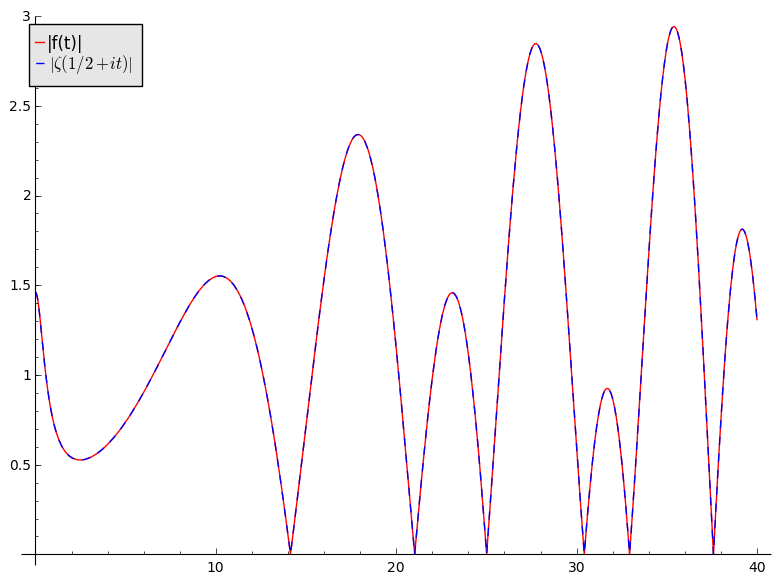Looks like on the critical line one can compute $\zeta(1/2+it)$ from $\zeta^{'}(1/2+it)$ and simpler functions.
Let
$$ \begin{aligned} f(t)= & 2\, \left( {\frac { \left( \left| \zeta^{'} \left( 1/2+it \right) \right| \right) ^{2}\Gamma \left( 1/4-1/2\,it \right) }{\zeta^{'} \left( 1/2+it \right) }}+\Gamma \left( 1/4+1/2\,it \right) \zeta^{'} \left( 1/2+it \right) {\pi }^{-it} \right) \\ & \left( \Gamma \left( 1 /4+1/2\,it \right) \right) ^{-1} \left( {\pi }^{-it} \right) ^{-1} \left( 2\,\ln \left( \pi \right) -\psi \left( 1/4+1/2\,it \right) - \psi \left( 1/4-1/2\,it \right) \right) ^{-1} \end{aligned} $$
For real $t$ we have $\zeta(1/2+it)=f(t)$, except possibly at zeros of $\zeta^{'}(1/2+it)$.
So we can compute $\zeta(1/2+it)$ given $\zeta^{'}(1/2+it)$ and computing simpler functions like the digamma $\psi$.
Q1 Is this really a differential equation for zeta on the critical line?
Q2 In case of positive answer to Q1, what is its classification?
Plot:
 Sage code in machine readable form:
Sage code in machine readable form:
def f(t):
"""
"""
import mpmath
from mpmath import gamma,zeta,log,psi
J=mpmath.j
Pi=mpmath.pi
t=mpmath.mpc(t)
return 2*( ( mpmath.fabs(zeta(1/2+J*t,derivative=1))**2/zeta(1/2+J*t,derivative=1) )*gamma(1/4-J*t/2)+gamma(1/4+J*t/2)*zeta(1/2+J*t,derivative=1)*Pi**(-J*t))/(gamma(1/4+J*t/2)*Pi**(-J*t)*(2*log(Pi)-psi(0,1/4+J*t/2)-psi(0,1/4-J*t/2 ) )) # should equal zeta(1/2+J*t) for real $t$
